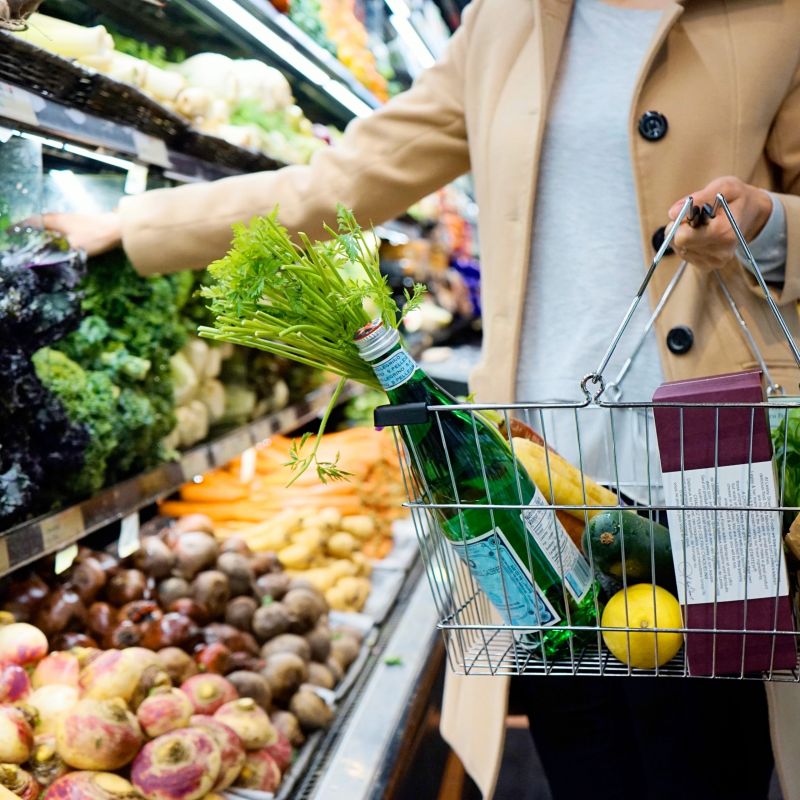How are supermarkets doing on sustainability?
Our response to Questionmark’s Supergreen list

RetailTrends talks to an expert every week about a notable current development. This time: consumer insights specialist in sustainable food, Durk Bosma, on the role of supermarkets in sustainability.
It is the Dutch national Week of Sustainability. In recent years, retailers have become increasingly concerned with this theme. One of the industries in which it is an enduring theme is the supermarket sector. It is where consumers are confronted every day with a choice of the sustainable alternative.
Last week, Questionmark published its Superlist Green on sustainability among Dutch supermarkets. The conclusions were not too laudatory.
“True. The conclusion of the report was clear: there is still a lot of room for improvement for all supermarkets. It is good that Questionmark has come up with very clear criteria and a clear yardstick. It is clear to all supermarkets that they have to improve, and in what way. In some cases, this could already be done tomorrow, if the supermarkets were willing. The best example is that all supermarkets are advisertising price promotions in the meat category. If they all decide to stop doing that, together or separately, that already has a huge impact.”
So the report appeals to supermarkets. Are those the parties responsible for sustainability in your opinion?
“Ultimately, sustainability is a joint responsibility. Governments can encourage sustainable choices and inform citizens, farmers can produce food more sustainably, factories can try to avoid emissions and operate sustainably, and consumers can make sustainable choices. The supermarket actually brings all those parties all together. So yes, they have a big responsibility. The supermarket influences consumer choices.
The supermarket determines how many sustainable products are bought. Supermarkets can take on the role of informing consumers, but also certainly educating them. What they offer guides what consumers will buy. They are currently not taking the responsibility they could.”
So there are still many opportunities for improvement?
“I think they could do that more. Currently, financial gain still stands above choosing sustainable options. If all supermarkets decided tomorrow to reduce the shelf space for meat, it could be incredibly benificial. Meat is polluting and by giving consumers fewer choices, they also buy less. The flip side is that the supermarkets then make less profit selling meat.”
On the other hand, we see many actions related to sustainability. Is this then for the stage?
“Sometimes I doubt the motives of supermarkets, yes. A concrete example is Albert Heijn. They have unleashed a whole PR campaign to announce they stopped handing out plastic tokens for shopping trolleys. It is very visible to the consumer, but does not achieve much reduction at the bottom line. It would be much better to find possibilities to reduce plastic packaging or use of plastic in the chain. That would make much more impact. I do doubt the motive then, though. Do you really want to be more sustainable or do you want consumers to believe you are?”
Does the key to sustainability lie with consumers?
“Yes, but you don’t have to wait for it as a supermarket. Sustainability doesn’t have to come at the expense of margins at all and doesn’t have to cost money. We have to get rid of the idea that sustainable is also more expensive. If you get consumers to eat a more plant-based diet, you make an impact without making their groceries more expensive. You can also choose to stop flying in fruit and vegetables and explain to consumers why you don’t have mangoes all year round. Local vegetables, seasonal, are cheaper and better for the world. You do see that happening more and more. It’s about making the options accessible. That way you get happy customers, maintain the high margin and are sustainable. You can do all that at the same time.”
A quick tour of the fields: how are the specific supermarkets doing?
“Albert Heijn does stand out positively as far as I am concerned, although I sometimes doubt their motives. They sell cruise holidays. That creates a very large ecological footprint. That is diametrically opposed to sustainability. But a very good initiative by AH is the Terra brand. It’s good that consumers get to know an umbrella brand that they know is sustainable. The sustainable option becomes recognisable. That is a powerful move. Still, as the market leader, Albert Heijn can do much more, so I also think they should take up that role.
Ekoplaza always was the sustainable organic supermarket. That is commendable, but there is still a lot to be gained in terms of marketing. They bombard consumers with lots of information about why shopping at Ekoplaza is better for the world. The focus is missing, however, as is a clear message about why it is better for the consumer. They mainly think that it is more expensive there.
PLUS has made quite a switch to organic in dairy and now potatoes. Customers can only choose own-brand organic dairy products. That is educating the consumer. There is no more discussion, but unfortunately, they dropped stitches in communication, which made the customer sceptical. They missed an opportunity to explain why organic is better and thus the good initiative got a negative connotation. A real shame.
Plus does come out as the worst in the Questionmark survey and I was surprised by that. Plus itself says it is partly because of the research methodology, but I think the methodology is very transparent. I think they can put the report to good use.
A positive surprise is also Lidl, which as a discounter shows that expensive and sustainable do not always go hand in hand. Lidl takes big steps, but continues to combine that with low prices. That’s clever. After all, if you sell products at a low price, you have less room to do these things. Lidl has a good mix in its range. They also make a clear statement about the origin of their products, local products. That is sustainable.
Jumbo is a bit quiet when it comes to sustainability. I think Jumbo is mainly looking for a happy consumer, before any real sustainable steps are taken. And let’s be honest, if you sponsor Max Verstappen for years, that is not the right starting point to be taken seriously on this topic.”
Are supermarkets going to continue their sustainability efforts soon?
“All supermarkets are working on it, but the targets are not that concrete yet. As far as I am concerned, supermarkets should not hide behind the fallacy that sustainability comes at the expense of profits because consumers do not want to pay for it. In the future, consumers will also switch supermarkets because one supermarket is more sustainable than another. If that is the case, then a financial argument comes in and suddenly a lot is possible. When social profit and financial profit are no longer opposites at all, then the biggest steps will be taken.”
We believe that understanding consumers is key to making the food system more sustainable. Successful innovation and impactful communication require a solid foundation of consumer insight.
We are the insights partner of choice for food companies and non-profits that aim to have a positive impact on society and our planet. Together we empower consumers to make food choices that are good for them as well as for the planet.
The Hague Tech - Waldorpstraat 5 - 2521CA - The Hague
(+31) (0)70 2042314 - Info@futureoffood.institute
Contact
Fill in this form and we'll be in touch shortly!
Newsletter
Do you want to receive a monthly dose of insights, opinions and events? Please subscribe to our newsletter.









